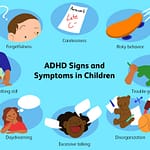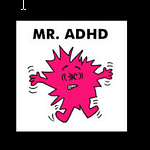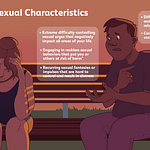Approximately 15-17% of individuals with ADHD have a comorbid anxiety disorder. Anxiety is often the result of extreme worries about ADHD. Symptoms of anxiety can be very difficult to control and may result in a cycle of worry and avoidance. If you or your child is experiencing anxiety, you should seek help from a licensed mental health professional.
Children with ADHD are often unable to focus, pay attention, and maintain attention. They may become defiant or offensive to others. They may also develop sadness or a lack of hope. Combined with these problems, anxiety can negatively affect their executive function and attentional functions.
There are numerous studies on the comorbidity of ADHD and anxiety. Researchers have conducted studies of pharmacotherapy, psychosocial intervention, and neuropsychological measures. The findings have been inconsistent. Some of the research has shown the positive effects of pharmacotherapy on ADHD symptoms, while others have found it to have a negative effect. The effects of these drug treatments are influenced by the person’s age and gender, as well as the dose. Several studies have shown that children with ADHD are prone to developing comorbid anxiety. This is because anxiety can interfere with attentional and inhibitory functions. The effects of anxiety can worsen the symptoms of ADHD.
There are three positive studies that have been conducted on pharmacotherapy in children with ADHD. These studies used tricyclic antidepressants to treat ADHD. However, the use of these drugs can cause urinary problems, constipation, and unpleasant side effects. Other methods of treatment have been proven to be effective. Currently, clinicians should distinguish between patients with an anxiety disorder who are receiving a formal DSM diagnosis, and patients with an anxiety disorder who are receiving non-pharmacologic therapies.
One study compared the neurological deficits of children with ADHD and anxiety disorders. The researchers assigned these patients to either paroxetine or dextroamphetamine. Both medications showed improvements in inhibition, but the children with ADHD were more likely to have better inhibition.
Another study evaluated the impact of anxiety on attentional functions in children with ADHD. They found that people with anxiety had problems with memory, concentration, and self-control. The results of the study were published in the Journal of Affective Disorders. These researchers also found that children with ADHD and comorbid AD had better inhibition than those without ADHD. These findings suggest that ADHD and anxiety coexist and that treatment of both should be considered in the overall treatment plan.
A study by Pistilmis examined the relationship between anxiety and neuropsychological deficits in ADHD and anxiety disorders. This study included 98 adults. All subjects were assessed for executive functioning, and they were randomly assigned to paroxetine or dextroamphetamine. They found that both types of medication improved inhibition in the ADHD patients, but only paroxetine was associated with a decrease in depression.
In contrast, a study by Teksin Bakir et al. (2007) found that both ADHD and anxiety disorders were linked to the brain’s ability to process emotion. The findings indicate that ADHD and anxiety can be a single unified disorder.







